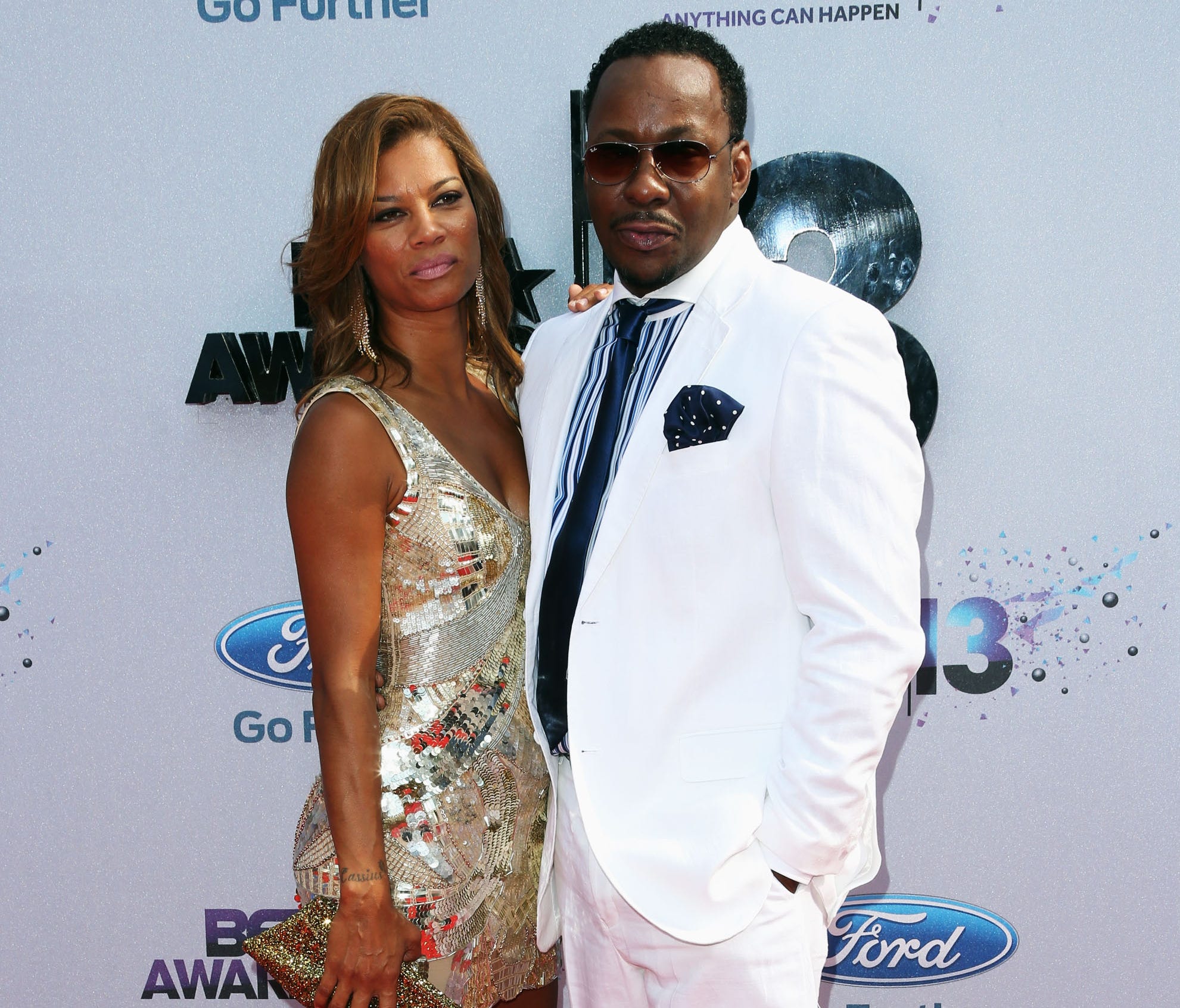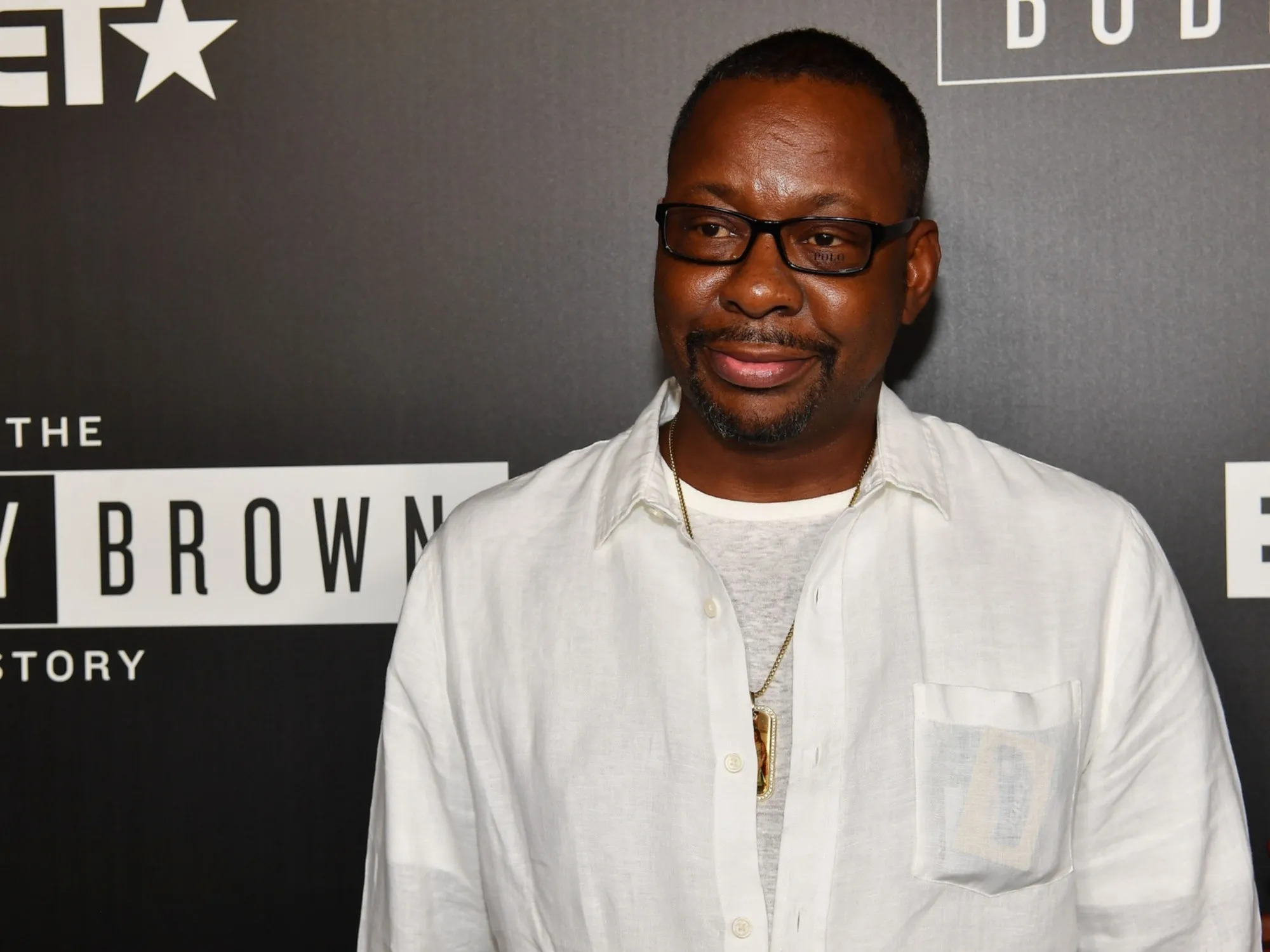Bobby Brown, a name that truly resonates with many who followed popular music during the late 1980s and early 1990s, brought a distinctive sound and presence to the entertainment scene. Born on February 5, 1969, in Boston, Massachusetts, in the United States, this American artist made his mark as a singer, a writer of songs, a rapper, and someone who moved with great skill on stage. His career began with a popular group, and then he found even more recognition as a solo performer, which is that kind of story many people find quite interesting, you know.
He was, in some respects, one of the most recognized figures in the music business during those particular years, a period when his tunes were heard everywhere. His ability to perform, to create catchy melodies, and to deliver them with a unique flair really set him apart from others at the time. It’s almost as if he had a special knack for connecting with listeners, making his songs feel like a part of their daily experience, which, honestly, is a rare gift for any artist to possess.
Yet, beyond the stage and the recording studio, his life also included significant personal moments that became part of his public story. For instance, his meeting and eventual marriage to another famous singer, Whitney Houston, in the early 1990s, added a different dimension to his well-known existence. They welcomed a child together, a daughter, a little later, which just goes to show how life's personal side often unfolds right alongside public achievements, right?
- Openai Chatgpt Subscription Availability Iran
- How To Subscribe Chatgpt Plus Iran
- Marjorie Bach Age
- Miley Cyrus Nude 2023
- Chatgpt Plus Subscription Iran Buy
Table of Contents
- Bobby Brown's Early Life and Career Beginnings
- What Made Bobby Brown a Household Name?
- How Did Bobby Brown's Personal Life Intersect with His Public Persona?
- Beyond Music - What Other Talents Did Bobby Brown Share?
- What Legacy Does Bobby Brown Leave in Entertainment?
Bobby Brown's Early Life and Career Beginnings
Born on February 5, 1969, in the city of Boston, Massachusetts, located in the United States, Bobby Brown started his life in a place that would eventually see him rise to considerable public recognition. His beginnings were rooted in a musical group, a collective known as New Edition, which is where he first truly found his footing as a performer. This initial period with the group allowed him to gain widespread attention and establish himself within the music scene, setting the stage for what would become a very notable individual career, so it seems.
His time with New Edition was, in some respects, a foundational period, shaping his performance style and his way of connecting with an audience. After a period of shared success with this musical collective, he made the choice to move forward as a solo act. This change happened in 1986, a decision that allowed him to explore his own artistic expressions and sounds. It was a pivotal moment that truly marked the start of his individual contributions to popular music, and that, you know, can often be a big step for any artist.
Personal Details and Bio Data of Bobby Brown
| Full Name | Bobby Brown |
| Date of Birth | February 5, 1969 |
| Place of Birth | Boston, Massachusetts, USA |
| Occupations | Singer, Songwriter, Rapper, Dancer, Actor, Producer |
| Known For | Music career with New Edition and as a solo artist, Hits like "Don't Be Cruel" and "Humpin' Around", Acting in films like Ghostbusters II (1989) and A Thin Line Between Love and Hate (1996) |
| Spouse | Whitney Houston (married 1992) |
| Child | Bobbi Kristina Brown (daughter, born 1993) |
What Made Bobby Brown a Household Name?
Bobby Brown truly became a name recognized by many across the nation during the late 1980s and the early part of the 1990s. His solo work, which followed his time with New Edition, really propelled him into the spotlight. He had a way of creating songs that just stuck with people, tunes that were played everywhere and became widely popular. This period was, like, his peak time for musical recognition, where his sound was quite distinctive and easily identified by listeners, so it was.
- Carly Jane Age
- Chatgpt Subscription Price Iran
- Quinton Boisclair
- Who Played Daniel Harrelson
- Connie Francis Current Health
Among the songs that truly cemented his place in popular music were "Don't Be Cruel" and "Humpin' Around." These tracks, in particular, showcased his unique vocal style and his ability to put together rhythms that made people want to move. They were more than just songs; they were cultural touchstones for many who grew up during that period, reflecting a certain energy and style that was very much of its time. He just had a knack for creating those kinds of memorable musical pieces, you know, that really get into your head.
His solo efforts allowed him to express a different side of his artistic self compared to his group days. This shift proved to be incredibly successful, making him one of the most famous figures in the music world for a significant stretch of time. The sounds he produced during this era were, apparently, quite influential, helping to shape the sound of popular music for years to come. It was a time when his individual artistic voice truly came into its own, and people really responded to that, basically.
How Did Bobby Brown's Personal Life Intersect with His Public Persona?
Beyond his achievements in music, Bobby Brown's personal experiences often became part of his public story, particularly his relationship with another highly celebrated singer, Whitney Houston. They first met in 1989, and their connection grew, leading to their marriage in 1992. This union brought together two very prominent figures in the entertainment world, and their lives together, in some respects, became a topic of much discussion among the public. It was a pairing that many people followed with keen interest, you know.
Their family grew in 1993 with the arrival of their daughter, Bobbi Kristina Brown, who was their first and only child together. This addition to their family added another layer to their public presence, showing a more private side to their lives as famous individuals. The events of their personal lives, including this happy occasion, often drew considerable attention, which is just a part of what comes with being so well-known. It showed how, for public figures, personal moments can often become shared experiences for many onlookers, too it's almost.
The shared life between Bobby Brown and Whitney Houston was, in a way, a significant part of his overall public narrative. Their relationship and family life were often subjects of public curiosity, adding a human element to his story beyond just his musical contributions. It showed how the personal paths of those in the public eye can become intertwined with their professional identities, creating a more complete picture of who they are in the eyes of the public, which, honestly, is a common thing for celebrities.
Beyond Music - What Other Talents Did Bobby Brown Share?
While his singing and dancing talents were what initially brought Bobby Brown to widespread attention, his creative expressions were not limited to just making music. He also ventured into the world of acting and took on roles as a producer, showing that his abilities extended into different forms of entertainment. This expansion of his work meant that people could see him in various settings, which, really, allowed him to display a broader range of his skills beyond the stage where he performed his songs.
His appearances in films include a part in the 1989 movie "Ghostbusters II," where he played a role that many people remember. He also acted in "A Thin Line Between Love and Hate" in 1996, and was involved with a project called "Wild." These roles allowed him to try out different kinds of creative work, showing that he was more than just a musician. It’s almost as if he was always looking for new ways to express himself and connect with an audience, whether through sound or through visual storytelling, you know.
Taking on these acting and producing responsibilities meant that his career was, in some respects, quite varied. It showed a willingness to explore different creative avenues and to contribute to the entertainment industry in more ways than one. This versatility is a trait that many performers possess, and for Bobby Brown, it meant that his presence in popular culture wasn't just tied to his hit songs but also to his appearances on screen, which, basically, added to his overall public recognition.
Bobby Brown's Influence on Music - A Pioneer's Mark
Bobby Brown is recognized for his role as a person who helped shape new sounds in music, particularly alongside a frequent musical partner, Teddy Riley. Together, they are considered by many to have been at the forefront of a certain musical style, introducing elements that would become very important in popular music. This aspect of his career points to his creative foresight and his ability to contribute to the evolution of contemporary sounds, which, honestly, is a significant achievement for any artist.
Their collaborative efforts helped establish certain musical conventions that would be adopted by others, marking them as important figures in the development of music during their time. This kind of influence goes beyond just having popular songs; it speaks to setting trends and creating a foundation for future artists to build upon. It’s almost like they were laying down the groundwork for new ways of thinking about and creating music, a very important contribution to the overall sound of the era, you know.
The Shifting Spotlight - How Did Bobby Brown's Fame Change?
While Bobby Brown's musical achievements in the 1980s and early 1990s were quite significant, his public recognition for music, in some respects, became less prominent over time. His hits like "Don't Be Cruel" and "Humpin' Around" were incredibly popular, but later events and other aspects of his public life began to take up more of the public's attention. This change in focus meant that his musical contributions, while still remembered, were no longer the main thing people talked about when his name came up, basically.
The way his public story unfolded meant that his fame, particularly as a musical artist, shifted its nature. What had been a strong focus on his songs and performances eventually gave way to other narratives that gained more public notice. This kind of change is not uncommon for individuals who live very public lives, where different parts of their existence can come into the spotlight at various times, sometimes overshadowing earlier achievements, you know. It’s just how things tend to go for people in the public eye.
What Legacy Does Bobby Brown Leave in Entertainment?
Bobby Brown, an American singer, a writer of songs, a rapper, and a dancer, built a career that left a distinct mark on the entertainment scene. His rise to public recognition began with the group New Edition in the 1980s, before he stepped out on his own in 1986. This move allowed him to produce individual hit songs that resonated with many listeners, creating a sound that was very much his own. His work, in a way, helped define a particular era in popular music, which is a pretty big deal, honestly.
Beyond his musical output, his involvement in acting and producing showed a versatile talent, appearing in films like "Ghostbusters II" and "A Thin Line Between Love and Hate." He is also recognized for his role as a pioneer in music, particularly through his work with Teddy Riley, helping to shape new sounds that influenced others. His story, therefore, includes not just popular songs but also contributions to film and a role in evolving musical styles, which, you know, makes for a multifaceted career.
His life in the public eye, including his marriage to Whitney Houston and the birth of their daughter, Bobbi Kristina Brown, also became part of his overall public narrative. These personal elements added a different dimension to his well-known existence, making his story one that many people followed beyond just his professional endeavors. It highlights how, for someone like Bobby Brown, his entire life, both on and off the stage, contributed to the collective memory people have of him, so it seems.



